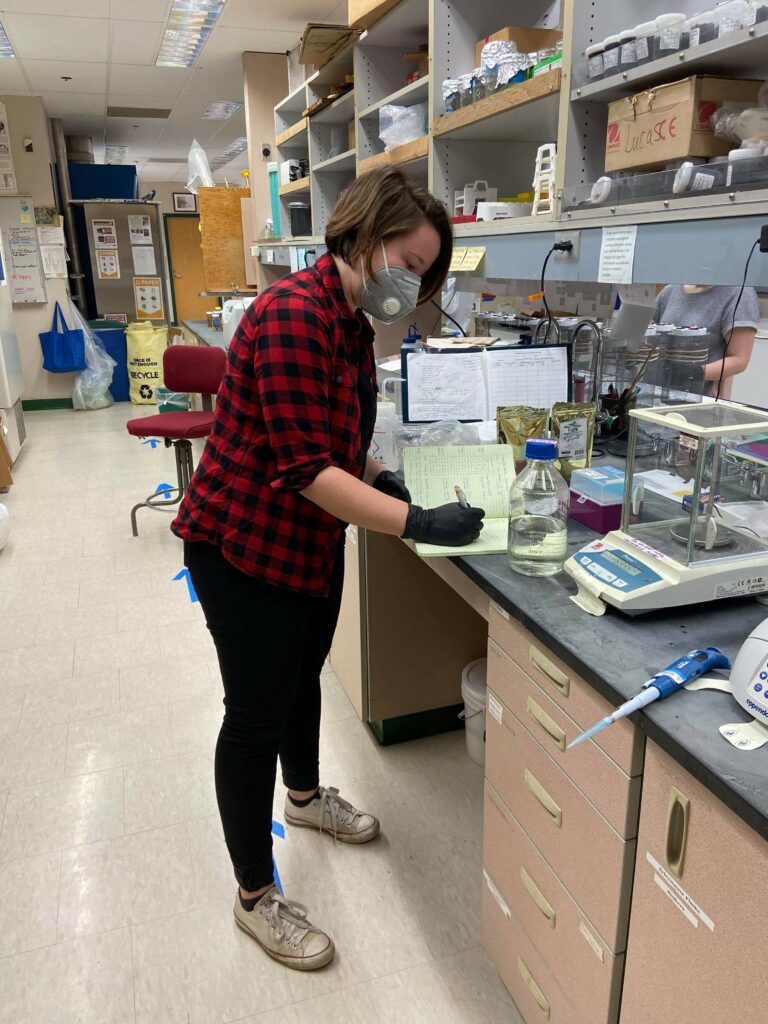We have a special guest this week on Inspiration Dissemination, our own Dr. Grace Deitzler (she/they) who is graduating this term with a PhD in Microbiology! Grace was on an episode of ID earlier in her degree and has served as a host since 2021. In this episode, we will mostly cover the remainder of Grace’s PhD work and give them a send-off both from OSU and from ID.
In the early part of her PhD, Grace worked on mice models of autism and examined the effects of bacterial infection on autism-like behaviors. Since then, her research has focused on a much different species – honeybees. A connective thread between these two disparate phases of research is the “double-hit hypothesis”. This refers to the idea that two concurrent stressors on an organism can increase vulnerability to or severity of disease, beyond the impact of either stressor individually. In mice, the two stressors were a simulated maternal infection during gestation and a subsequent infection of the offspring. In honeybees, the double-hit of interest to Grace is treatment with probiotics after an infection, in this case by a microsporidian fungus.
In comparison with mice or humans, honeybees have a very homogeneous microbiome, with just 8-10 bacterial species accounting for around 95% of the total. The minimalism of the honeybee microbiome and its conservation across individuals suggests that the insect and its bacteria have co-evolved for millions of years. As pollinators, honeybees are of vast ecological and economic importance, with $20 billion in agricultural activity sustained by managed colonies in the US. Beekeepers are understandably interested in protecting their colonies from infection by pathogens such as fungi and foreign bacteria. Much like the probiotic shakes marketed for human consumption, companies have developed probiotic products for honeybees and marketed them towards keepers.
Grace’s research findings cast this practice into doubt. They exposed the pupae to Nosema, a common fungal pathogen that targets the bees’ gut. Then they treated some bees with probiotics. Somewhat counterintuitively, infected individuals treated with probiotics died more quickly than those not fed probiotics! Premature death due to probiotic administration was even observed among healthy bees not exposed to the pathogen. This surprising result spurred Grace to investigate possible mechanisms for probiotic-induced mortality. The Nosema infection damages the bee’s microbiome, eliminating many species from the gut. Grace found that although the probiotic partially restores some of these bacterial species, it leads to more subtle disequilibria in the microbiome at the level of specific bacterial strains. She hypothesizes that this imbalance induces stress that is enough to worsen the bee’s ability to survive. Their results also raise questions about the efficacy of current honeybee probiotics, which appear to do more harm than good. After final analyses are complete, these results will be available in a forthcoming paper.


To hear more about the details of bees and bacteria as well as Grace’s experiences in science communication, tune in this Sunday, June 11th, at 7PM on 88.7 KBVR.
